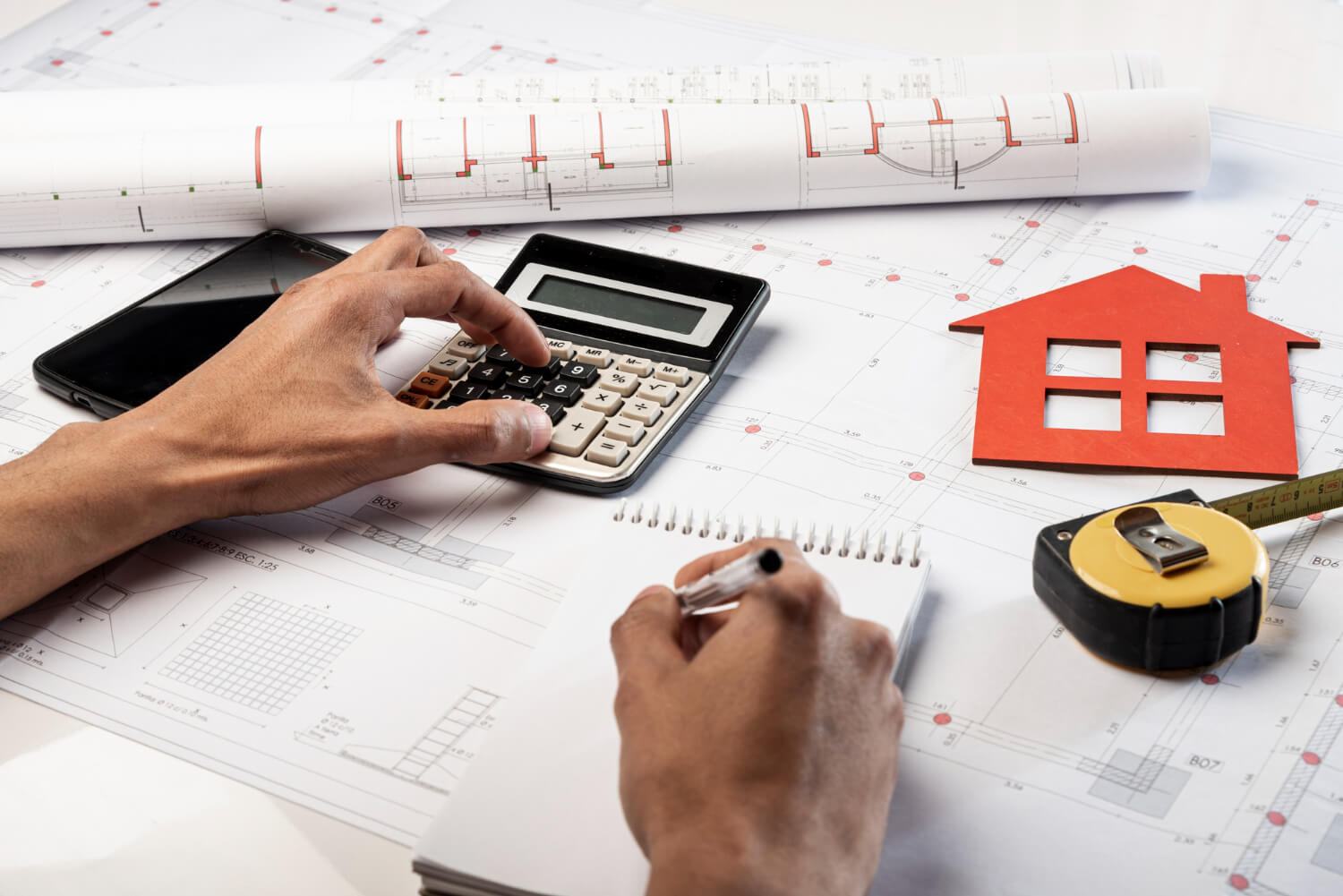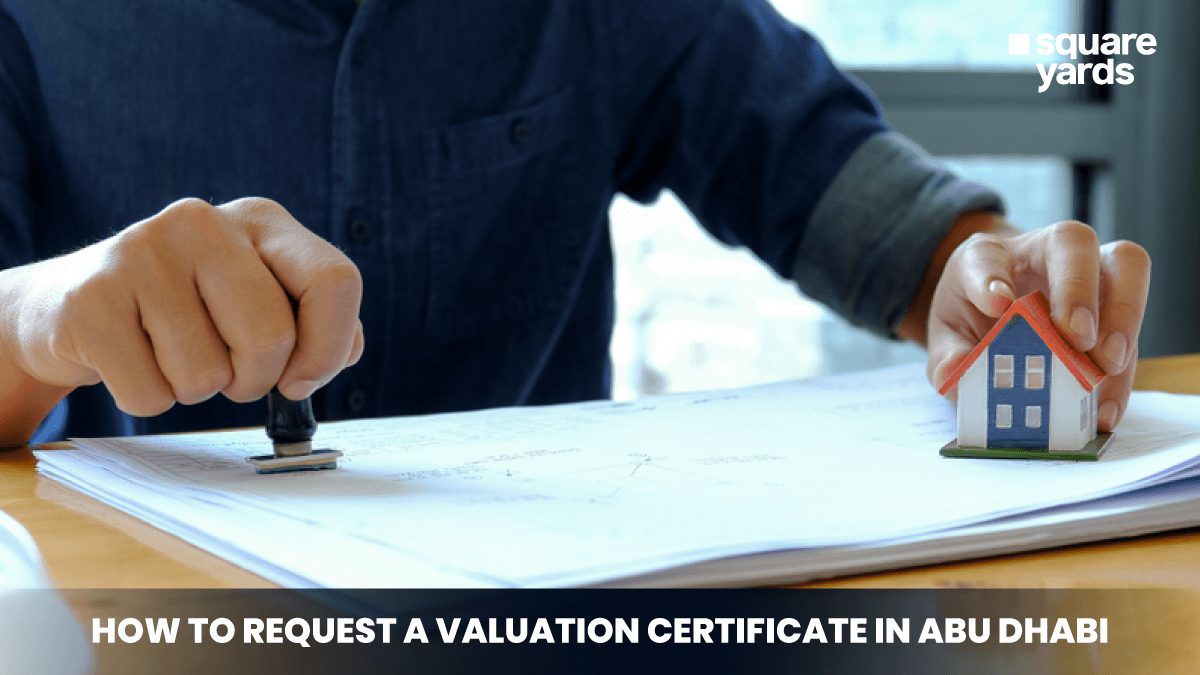Acquiring a property valuation certificate in Abu Dhabi that reflects your property’s current market price is important. Why so? Because it helps set the right price for property deals and makes it easier to get loans or mortgages. Moreover, it meets legal rules and helps settle disputes over property value.
This blog will discuss everything about property valuation and the valuation certificate in Abu Dhabi. Specifically, we will highlight its importance and provide steps on how to get one from certified valuers. So, keep reading to learn why this is essential for every homeowner or investor in Abu Dhabi.
Understanding Property Valuation Certificate in Abu Dhabi
The valuation certificate is an official document considering the property’s estimated market value. Typically, a recognised authority or a certified property valuer issues this certificate. Thus, it’s essential to anyone buying, selling, or mortgaging a property. This includes the property’s location, size, condition, and factors like taxes and arrears. You can also apply for a valuation certificate in Abu Dhabi via the TAMM portal. This helps in making informed financial and real estate decisions. It is also a legal document for tax assessment, disputes, inheritance, and investments.
Different Types of Property Valuation Certificates
Several types of valuation certificates are tailored to different kinds of properties. Here is an overview of the types of valuation certificates:
- Agricultural: It assesses the value of land used for farming,
- Residential: It provides an estimate for homes or apartments.
- Commercial: It is for properties used for business purposes.
- Investment: It evaluates properties bought to generate income.
Each certificate includes the estimated market value, applicable taxes, mortgage values, and property acquisition methods. Therefore, these certificates provide a clear, official assessment of a property’s worth. It helps buyers, sellers, and investors make informed decisions.
Who Should Obtain a Property Valuation Certificate?

A property valuation certificate in Abu Dhabi is important and is key for anyone involved in the real estate market.
- Buyers and Sellers: To get an accurate market value for informed decisions.
- Mortgage Applicants: Banks require them to determine loan amounts.
- Property Owners: For legal purposes like tax calculations, dispute resolution, or inheritance division.
- Real Estate Agents and Investors: To assess potential returns on investment.
How to Request a Property Valuation Certificate in Abu Dhabi?
To request a valuation certificate in Abu Dhabi, follow the steps given below. These include choosing a qualified valuer, gathering the necessary documents, and submitting the application correctly.
-
Selecting a Property Valuer
Choosing the right valuer is crucial in obtaining a property valuation certificate in Abu Dhabi. Therefore, it’s important to select a certified valuer registered with the local authorities. The certified valuer can accurately assess the property’s value based on location, size, condition, and market trends. A reputable valuer ensures the certificate is valid for legal, financial, or real estate transactions.
-
Required Documents
One must have the necessary documents in advance to request a valuation certificate. These typically include:
-
- Proof of Income: A certificate or document that verifies the property owner’s income.
- Clear Photographs: Photos of the property from all sides, providing a complete view of the building or land.
- Land Plan: A detailed plan showing the boundaries and layout of the property.
- Ownership Documents: Papers proving ownership or any legal documentation related to the property.
- Additional Documents: Any extra documents required to prove the property’s history, acquisition method, or any renovations.
-
How to Submit Your Application?
After selecting the valuer and collecting all the documents, the next step is to submit the request for a valuation certificate in Abu Dhabi. The submission process involves the following steps:
- Initiate the Request: Start the process on the official portal or platform provided by local authorities, such as TAMM in Abu Dhabi.
- Complete the Application Form: Fill out all the required sections with accurate details about the property.
- Upload Documents: Attach all necessary documents to support the application as specified in the guidelines.
- Pay the Fees: Submit the processing fees for the valuation service. The fee amount may vary depending on the property type.
- Receive Confirmation: After submission, you will receive a confirmation or receipt for the application.
Fees for Property Valuation
In Abu Dhabi, property valuation fees vary depending on the assessed property type. For example, residential property valuation fees differ from commercial, agricultural, or investment properties. The fees typically range from AED 900 for residential and agricultural properties to AED 4,500 for commercial properties. When requesting a property valuation certificate in Abu Dhabi, these fees are paid through official platforms like TAMM.
-
Key Factors Influencing Fees
Several factors influence property valuation fees in Abu Dhabi. Here is a detailed overview of factors affecting valuation fees:
-
- Property Type: Fees for residential, commercial, agricultural, and investment properties vary. The fee for commercial properties is usually high due to the complexity of their valuation.
- Property Size and Location: Larger or prime location properties may have higher valuation fees due to the more detailed and time-consuming assessment process.
- Purpose of Valuation: Valuation fees may be higher for legal disputes, inheritance, or other complex purposes due to the need for detailed evaluation.
- Additional Services: Extra services like detailed reports, consultation, or expedited processing can affect the valuation fees.
-
Payment Options
The payment methods for fees for property valuation in Abu Dhabi are straightforward and convenient. These include:
- Online Payment: The most common method for paying valuation fees is through online platforms like the TAMM portal. Users can pay using credit cards, debit cards, or other online payment methods.
- Bank Transfers: Some authorities or valuation companies accept direct bank transfers.
- In-person Payments: The payments can also be made at designated government service centres or authorised valuation offices.
Obtaining a receipt or confirmation after payment is important to track the payment and ensure the process is completed smoothly.
How to Acquire a Property Valuation Certificate?

Obtaining a property valuation certificate in Abu Dhabi is simple. First, submit a request on the TAMM portal and complete the online form. Next, provide property details, upload documents, and pay the fees. Then, officials will review your application for accuracy.
-
Valuation Certificate Processing Time
Processing the property valuation certificate in Abu Dhabi usually takes three working days after submitting all required documents. However, it may take longer, depending on the property type or how well the document is completed.
-
Valuation Certificate Delivery
Once they prepare the property valuation certificate in Abu Dhabi, applicants can access, download, or print directly from the TAMM portal. Also, applicants collect physical copies from authorised service centres, but most often, digital copies suffice.
Use of Property Valuation Certificate in Making Informed Investment Decision
A valuation certificate helps investors make informed investment decisions by providing a market’s value, condition, and potential returns. It allows for easy comparison of various properties and securing bank loans in Abu Dhabi. This identifies properties that have the potential to appreciate over time or yield stable rental income.
Final Words
One can obtain the property valuation certificate in Abu Dhabi via the TAMM portal. It provides accurate property values, covering market prices, taxes, and mortgage details. It helps buyers and sellers make informed decisions. The process is simple. Submit an online request, fill in the details, attach the documents, pay the fee, and receive the certificate in a few days. This certificate ensures transparency and confidence in real estate transactions.
Recommended for you :
|
Transfer Property Ownership in Abu Dhabi |
|
|
Importance Of Estidama in Abu Dhabi |
|
|
Request for Inspection with TAMM |
|
|
Tawtheeq Cancellation Abu Dhabi |
|
|
Musataha Agreement in Abu Dhabi |
Frequently Asked Question (FAQs)
How much does it cost to get a property valuation in Abu Dhabi?
The cost of property valuation in Abu Dhabi varies depending on the property type. Generally, fees range from AED 900 for residential properties to AED 4,500 for commercial properties.
How do I obtain a valuation certificate in Abu Dhabi?
To obtain a property valuation certificate in Abu Dhabi, you must apply online via the TAMM portal. You must provide the required documents, such as proof of income and images of the property. Typically, the certificate is processed within a few days of submitting the application and paying the fees.
Who can conduct a property valuation in Abu Dhabi?
In Abu Dhabi, property valuations can be conducted by certified property valuation companies. It is recommended that they must be registered with local authorities or through the TAMM portal.
Do I need a valuation certificate for the property transfer?
Yes, a property valuation certificate is required for property transfers to determine the accurate market value of the property. It helps calculate the applicable fees and taxes and ensures a fair transaction between the parties involved.
Can I use a valuation certificate for insurance purposes?
Yes, a property valuation certificate in Abu Dhabi can be used for insurance purposes. This certificate accurately estimates a property's market value. It is essential for determining the correct insurance coverage amount.
How is a valuation certificate used for mortgage purposes?
A property valuation certificate in Abu Dhabi is used for mortgage purposes. It gives banks and financial institutions an accurate estimate of a property's market value. Moreover, it ensures that the mortgage amount aligns with the property's worth and provides security to lenders.




